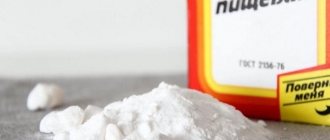Every person has experienced heartburn after eating at least once in their life. This unpleasant symptom is a burning sensation that begins in the epigastric region, rises upward and may be accompanied by pain and sour belching3. According to statistics, about 50% of adult Russians periodically suffer from heartburn, and 9% experience the symptom more than once a week2.
Nutrition plays a leading role in the mechanism of heartburn. Most often, the symptom occurs 15-30 minutes after eating, less often – within an hour4. It is not recommended to ignore the problem, since it not only causes physical discomfort, but can also gradually progress and develop into a disease2.
The mechanism of heartburn
The esophagus is a part of the digestive canal that is shaped like a tube that allows the bolus of food to move from the pharynx to the stomach. Normally, in the absence of swallowing movements, the place where it passes into the stomach is blocked by the lower esophageal valve, which acts as a valve. When food passes, the muscle ring reflexively opens and then closes again until a new portion arrives, preventing aggressive gastric juice from entering the esophagus. If the action of the described protective mechanism is disrupted, heartburn develops.
Heartburn causes and consequences
When this symptom is mentioned at a therapeutic appointment, patients immediately wince, remembering their sensations: an unpleasant burning sensation behind the sternum, rising up the esophagus, to the oral cavity and the sudden appearance of a sharp sour taste in the mouth.
We are talking about heartburn, which affects a variety of people - thin and fat, young and old - and often do not know what to do about it.
For years, sufferers have been trying to cope with the merciless burning sensation on their own, resorting to various means, for example, drinking mineral water, or taking over-the-counter heartburn remedies, and sometimes using household products such as soda. At the same time, many never get to the doctor because they do not consider heartburn a serious cause for concern. And in vain.
Heartburn and cancer: when is it time to worry?
The appearance of heartburn indicates the presence of reflux of acidic stomach contents into the esophagus, which in medicine is called gastroesophageal reflux and reflects the process of reverse digestion. The mucous membrane of the esophagus and pharynx, with frequent irritation by hydrochloric acid of gastric juice, becomes easily vulnerable to the development of first precancerous diseases of these organs, and then adenocarcinoma.
Important: heartburn that occurs more than once a week is a direct indication for examination.
For those who are “not sure” about going to the doctor, I suggest you answer the questions on the Richter scale
(ACG “Understanding GERD”):
1. Are you often bothered by at least one of the following?
- Burning in the back of the throat.
- Bitter, acidic taste in the mouth.
- Discomfort in the chest that seems to move upward from the stomach to the mouth.
2. Do you often experience the sensations listed above AFTER EATING?
3. Do you suffer from heartburn two or more times a week?
4. Does taking over-the-counter medications only provide temporary relief?
5. After the course of treatment prescribed by the doctor, did the symptoms appear again?
If you get more than two affirmative answers, it is necessary to conduct a rather unpleasant, but very informative examination, which is EGDS (esophagogastroduodenoscopy), but more often they say simply gastroscopy.
Carrying out diagnostics
Using a thin flexible tube with a light at the end, inserted through the mouth into the patient's esophagus and stomach, the endoscopist can examine the condition of the mucosa throughout the upper gastrointestinal tract and take part of the mucosa for a biopsy. This examination will quickly and reliably answer the main question: is there an oncological process or suspicion of it.
If, fortunately, the most important fear is not confirmed and the growth of atypical cells is not detected, then every effort must be made to find out and eliminate the causes of heartburn.
It has been reliably proven that if chronic long-term heartburn is ignored, there is a high risk of developing such changes in the structure of the cells of the esophageal mucosa, which, with continued exposure to harmful factors (aggressive food, stress), can transform into atypical, cancer cells.
How to get rid of heartburn
Nowadays, great strides have been made in the treatment of many diseases of the digestive tract. But, unfortunately, esophageal cancer is currently almost impossible to effectively treat successfully. But gastroesophageal reflux disease (GERD), the manifestation of which is heartburn, on the contrary, can disappear forever after proper adherence to the regimen and taking medications.
A patient interested in success should maintain his normal weight and eat wisely, avoiding foods that affect the lower esophageal sphincter, such as chocolate, citrus fruits, and bread. It is recommended not to overeat, not to go to bed after eating, and to raise the head of the bed (but not to sleep on a high pillow). If you have heartburn, you should not wear tight clothes or a tight belt. The tone of the lower esophageal sphincter is negatively affected by drinking strong alcohol and smoking.
It is also necessary to establish a reasonable, gentle nutrition for the mucous membrane of the digestive tract and carry out high-quality treatment using modern means that affect the cause and development of inflammation of the digestive organs under the supervision of an experienced gastroenterologist or therapist.
And it is imperative to undergo endoscopy at least once a year to identify precancerous conditions in order to be sure to identify and treat them.
For the treatment of GERD in the arsenal of a modern doctor there are two schemes:
- step down (lower tension) - when treatment begins with the most effective potent drug and ends with mild antacids;
- step up (increase tension) - start with mild antacids and, if ineffective, gradually add more potent agents.
To determine which regimen is preferable in each specific case, the doctor collects anamnesis (medical history), conducts a thorough examination and interprets test results. After the correct selection of a treatment regimen, final relief from gastroesophageal reflux is most likely.
If you experience heartburn sporadically, no more than once a month, you should take antacids or proton pump inhibitors in low dosages to alleviate the condition, do not overeat and do not wear a tight belt. But do not miss the moment if the symptom begins to appear more often - in this case, be sure to consult a doctor.
Anna Averina
Photo istockphoto.com
Why does heartburn occur after eating?
Often, heartburn after eating occurs due to excessive release of hydrochloric acid in the stomach. This occurs when eating fatty, fried, spicy, smoked foods and marinades. Citrus fruits, fruits with high acidity and tomatoes, which promote increased production of gastric juice, can also trigger a burning sensation.
Under the influence of caffeine, the esophageal valve relaxes, and the contents of the stomach enter the esophagus, causing an unpleasant burning sensation, and carbonated drinks contribute to an increase in intragastric pressure, which also leads to the development of heartburn.
In addition to the above, mention should be made of cheese, avocado, peppermint, nuts, milk chocolate, chips and confectionery.
Treatment of heartburn after eating
Drugs for the treatment of burning sensation behind the sternum and sour belching have different mechanisms of action: suppressing acid production, neutralizing already produced acid, enveloping the esophagus to protect its walls. Antisecretory drugs are considered the most effective means in the fight against heartburn2. Unlike antacids, which neutralize acids quickly but last only a few hours, antisecretory agents have a longer-lasting effect and affect not only the symptoms, but also the mechanism of development of heartburn2,4.
Razo 10 mg is a drug from the group of proton pump inhibitors, the active ingredient of which is rabeprazole1. The drug at a dose of 20 mg per day provides suppression of hydrochloric acid production for 24 hours1. Available in tablets. Once 10 mg is recommended to be taken to combat the main manifestations of gastroesophageal reflux: heartburn and sour belching1. It is recommended to take the course for 14 days. If the condition does not improve after completing the course, it is recommended to consult a specialist1.
Heartburn is a symptom that significantly impairs a person’s quality of life and can lead to the development of chronic diseases of the digestive tract3. Therefore, when it occurs, it is better to immediately take the necessary measures: change your lifestyle and eating habits. Razo 10 mg will help combat the cause of the symptom.
Nutrition for heartburn
If you have heartburn, it is important to adhere to a certain diet and nutrition regimen. Nutrition should be balanced, mechanically, chemically and thermally gentle.
If you have heartburn, you should eat:
- vegetables,
- bananas,
- sweet apples,
- lean boiled or baked meat,
- cereals,
- low fat dairy products,
- low-fat first and second courses.
It is recommended to exclude from the diet or minimize consumption of:
- citrus fruits,
- sour fruits and their juices,
- garlic,
- Luke,
- tomatoes,
- fatty and fried foods,
- dairy products with a high percentage of fat,
- seasonings, sauces,
- cream confectionery,
- fatty first courses,
- chocolate,
- coffee,
- strong tea,
- carbonated and alcoholic drinks.
Risk factors
In most cases, a burning sensation behind the sternum is caused by a violation of the diet and diet. Certain lifestyle habits also increase the risk of developing symptoms. The main risk factors for developing heartburn after eating:
- Binge eating. Both one-time during the holidays, and permanently due to incorrect eating habits: large portions, eating 1-2 times a day.
- Rest lying down immediately after eating.
- Abuse of certain foods (sweets, fried and fatty foods, chocolate, coffee, strong tea, sour foods, spicy foods and others).
- Excess weight due to increased intra-abdominal pressure. By the same principle, pregnant girls are susceptible to heartburn, especially in the last trimester.
- Wearing tight, tight clothing that does not fit. Especially with excessive pressure on the waist.
- Smoking helps relax the sphincter between the esophagus and stomach.
- Taking certain medications: antihypertensives, sedatives, antidepressants, antiarrhythmics (you cannot stop taking prescribed medications on your own, you must first consult the doctor who prescribed them)2,3,4.
The listed risk factors can cause an unpleasant symptom even in a completely healthy person. Also, pain and heartburn after eating can be a sign of certain diseases. Gastroesophageal reflux is one of the main manifestations of gastroesophageal reflux disease. It is characterized by persistent relaxation of the muscular sphincter between the esophagus and stomach. The disease can be suspected if heartburn bothers you once a week or more often for at least 3 months4.
How to get rid of heartburn?
To refuse from bad habits.
Smoking and alcohol abuse have a negative impact on all parts of the digestive tract without exception, but the lower esophageal valve is the first to suffer, which leads to a constant burning sensation behind the sternum. Giving up bad habits after some time completely normalizes the condition and also prevents the development of more serious and dangerous complications.
Normalize your daily routine.
People suffering from heartburn after eating are advised to normalize their daily routine. Instead of three meals a day, you should switch to fractional, 4-6 meals a day. It is advisable to eat food silently and slowly, in order to avoid swallowing excess air and increasing intragastric pressure. You should have dinner 3 hours before bedtime. Evening walks in the fresh air are very useful, they help food digest as much as possible and help normalize acidity levels. At the same time, lying down after eating is very harmful, since in a horizontal position the contents of the stomach more easily penetrate the esophagus.
However, it should be understood that constant heartburn is not a disease, but a symptom. Therefore, to completely eliminate it, you should seek help from a doctor who will diagnose and treat the disease that caused this condition.
General recommendations for dealing with heartburn
To reduce the likelihood of heartburn and belching after eating, follow these recommendations:
- It is better to sleep with the head end raised, about 15 cm.
- Normalize weight by following a diet with a variety of foods and doing exercise.
- After eating, you should not lie down to rest; it is better to take a walk in the fresh air.
- Dinner should be at least 2-3 hours before bedtime.
- It is recommended to avoid wearing too tight clothing and wearing tight belts.
- After eating, you should avoid excessive physical activity, bending over, and lifting heavy objects.
- Stop smoking and drinking alcoholic beverages.
- Avoid uncontrolled use of sedatives and tranquilizers3,4.
Diet plays an important role in the treatment of heartburn. To reduce the frequency of unpleasant symptoms, it is recommended to adhere to the following dietary rules:
- Meals should be balanced and varied, and it is recommended to shift most of the diet to the first half of the day: a hearty breakfast, a medium lunch, a light dinner.
- Refusal of foods that provoke excessive acid production: chocolate, coffee, fatty and fried foods, sour apples, sweets, carbonated drinks, tomatoes, spices, smoked meats, fast food, citrus fruits.
- It is recommended to eat at least 3 times a day, and the portions should be small. Avoid overeating.
- Calorie content should be appropriate for age and daily physical activity. To normalize weight, the total calorie content of the daily diet may be slightly reduced.
- It is recommended to drink more, but not tea, coffee, juices or sweet drinks, but clean still water. In this case, the water temperature should not be too low3,4.
Many people do not take the burning sensation behind the sternum seriously enough. This condition does not necessarily indicate illness, but that does not mean it can be ignored. Untreated, frequent heartburn can cause erosions and ulcers on the walls of the esophagus, which then turn into scars. Such changes contribute to a narrowing of the lumen of the esophagus, which makes it difficult to eat food and may require surgical intervention4.






